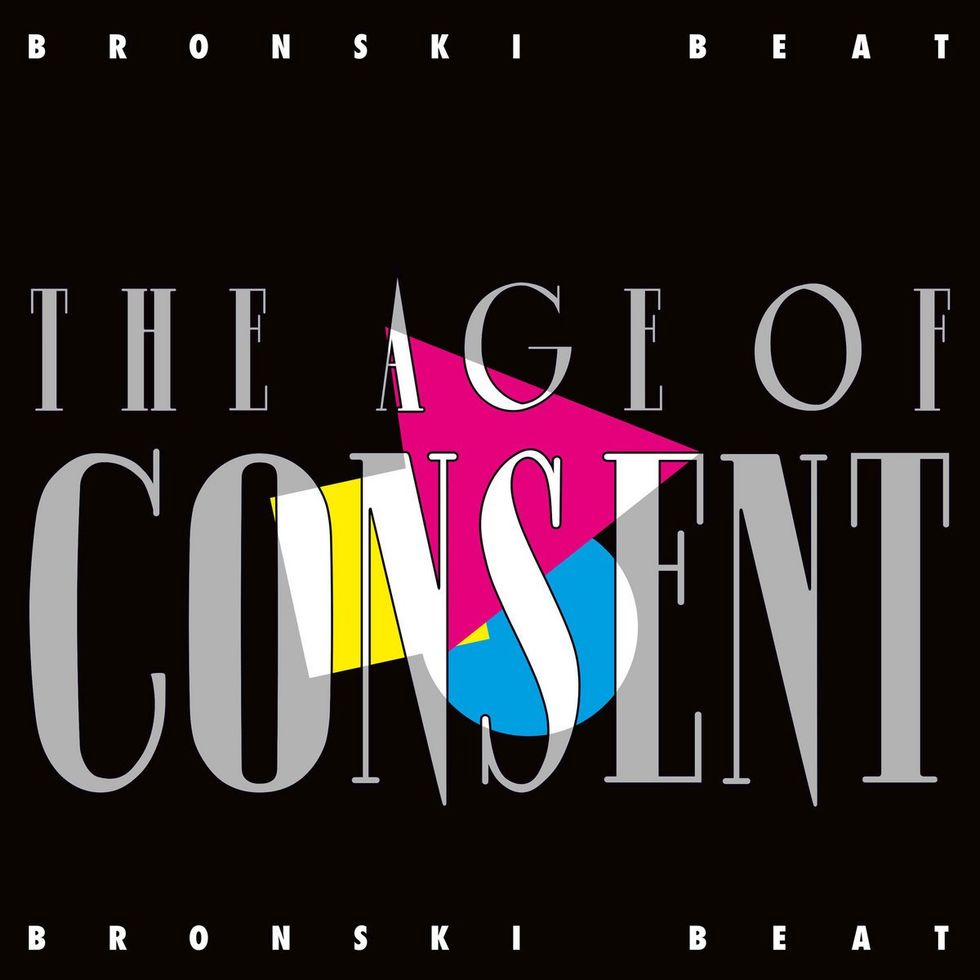Scroll through TikTok these days and you'll find teens and young adults encouraging their Gen X parents to dance like they were back in their favorite ’80s club. Dads begin to sway and stomp their feet; moms move their hips and raise their hands overhead. In a few of the videos, parents resort to dance moves that proliferated in the era like the Moonwalk or the Robot.
Keep up with the latest in LGBTQ+ news and politics. Sign up for The Advocate's email newsletter.
There is a common denominator to the trend that’s hashtagged “80s Dance Challenge,” “80s Challenge,” and “80s Dance.” It’s the soaring falsetto over quintessential British synth-pop dance music. The voice belongs to Jimmy Somerville, the lead singer of Bronski Beat, whose other original members were Steve Bronski and Larry Steinbacheck. The song is 1984’s “Smalltown Boy,” a rare for the time, overtly queer semi-autobiographical anthem about a bullied gay kid fleeing home to a more accepting place. It was a clarion call for queer kids and queer people of any age, who finally had a song describing their experience.
“You leave in the morning with everything you own in a little black case / Alone on a platform, the wind and the rain on a sad and lonely face,” Somerville pines in the song. In the equally arresting video, the English suburbs sweep by in the background as Somerville stares into nothingness on a train to anywhere else but home.
“Mother will never understand why you had to leave / But the answers you seek will never be found at home / The love that you need will never be found at home,” the song continues.
Bronski Beat - Smalltown Boy (Official Video)Taken from the album “The Age of Consent”, available on all platforms: https://BronskiBeat.lnk.to/TheAgeOfConsentID Listen to the ...
“Smalltown Boy” was the first single off of Bronski Beat’s freshman album, The Age of Consent. The album cover bore geometric shapes, including an unmistakable pink triangle, the symbol the Nazis forced queer people to wear in concentration camps based on Germany’s Paragraph 175, a law that criminalized “unnatural indecency,” frequently applied to queer sex.
 The Age of Consent Album Cover
The Age of Consent Album Cover
As the more freewheeling Weimar era (as depicted in Cabaret) gave way to Hitler’s rule, queer people were sent to the camps. ACT UP, the queer activist group formed to address the U.S. government’s dismal response as HIV and AIDS decimated the queer community, reclaimed the pink triangle when it formed in 1987 with its “Silence = Death” slogan, this time with the triangle right side up. But Bronski Beat used it four years earlier on the album that included “Smalltown Boy” and the equally queer “Why.”
“Contempt in your eyes when I turn to kiss his lips,” Somerville sings in “Why.” “Broken I lie, all my feelings denied, blood on your fist.” The lyrics were immediate, visceral, and the music was, well, highly danceable. It’s no wonder Gen X parents are showing off their ’80s dance moves to Bronski Beat.
@amanda_carluccioHad to try this trend on them… 🤣 #trend #parents #family #80s #thecarluccios
“Smalltown Boy,” which astute listeners might notice played over the trailer for this year’s ultra-queer Kristen Stewart and Katy O’Brian starrer Love Lies Bleeding, celebrated its 40th anniversary on May 25 of this year. Somerville released a video marking the moment.
“Forty years ago today, ‘Smalltown Boy’ was released,” Somerville said. “I remember doing our first Top of the Pops [British music show], beamed into the nation’s front rooms, and then seen all over Europe on pop shows. It was three young gay men; out, proud, in your face.”
“And we had a message. That message, now, still resonates 40 years later,” Somerville continued, contextualizing the song’s history for today. “We seem to be regressing in so many places, so many countries, rights are being chipped away at. There’s a real surge of homophobia, aggression towards anyone who basically wants to be themselves and love who they choose.”
Black queer musicians like Gladys Bentley and Ma Rainey sang overtly queer lyrics and bent their gender presentation in the early part of the 20th century. Little Richard was a phenomenon of queer sexual energy in the ’50s and ’60s. By the 1970s, musicians including David Bowie, Elton John, Freddie Mercury led the way upending norms around sexuality and gender presentation. Bowie famously appeared on Saturday Night Live flanked by queer experimental performers Joey Arias and Klaus Nomi in 1979 delivering electric and subversive renditions of “The Man Who Sold the World” and “Boys Keep Swinging.” Bowie wore a Nomi-inspired/German Expressionist wide angular tux with a pencil skirt while Nomi and Arias wore skin-tight dresses on NBC.
By the early 1980s, Grace Jones straddled gender lines, Annie Lennox, with her fiery buzz cut and men’s suit and tie, blew minds in Eurythmics’ “Sweet Dreams” video (1983), and Boy George and Culture Club turned gender on its head with videos for “Do You Really Want to Hurt Me” (1982) and “Karma Chameleon” (1983).
Erasure, a synth-pop group that featured gay front man Andy Bell along with keyboardist Vince Clarke (Depeche Mode and Yaz), formed the year “Smalltown Boy” was released. They would go on to release a multitude of queer songs including “Oh L’Amour” (1985), “Chains of Love” (1988), and “A Little Respect” (1988).
But in 1984, Bronksi Beat was a beacon for gay people. The group wasn’t queer-coded and left no room for anyone to ponder the sexual identity of the members or what their message meant. As Somerville says in his video, Bronksi Beat was “Out, proud, and in your face.”


 The Age of Consent Album Cover
The Age of Consent Album Cover 


































































Charlie Kirk DID say stoning gay people was the 'perfect law' — and these other heinous quotes